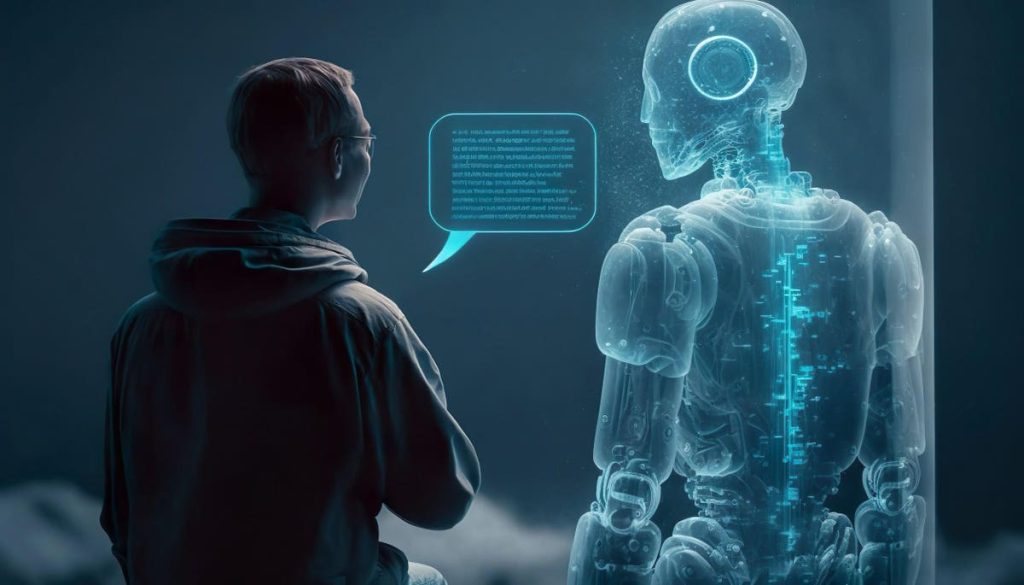Artificial Intelligence (AI) has been a buzzword across sectors for the last decade, leading to significant advancements in technology and operational efficiencies. However, as we delve deeper into the AI landscape, we must acknowledge and understand its distinct forms. Among the emerging trends, generative AI, a subset of AI, has shown immense potential in reshaping industries. But how does it differ from traditional AI? Let’s unpack this question in the spirit of Bernard Marr’s distinctive, reader-friendly style.
Traditional AI: A Brief Overview
Traditional AI, often called Narrow or Weak AI, focuses on performing a specific task intelligently. It refers to systems designed to respond to a particular set of inputs. These systems have the capability to learn from data and make decisions or predictions based on that data. Imagine you’re playing computer chess. The computer knows all the rules; it can predict your moves and make its own based on a pre-defined strategy. It’s not inventing new ways to play chess but selecting from strategies it was programmed with. That’s traditional AI – it’s like a master strategist who can make smart decisions within a specific set of rules. Other examples of traditional AIs are voice assistants like Siri or Alexa, recommendation engines on Netflix or Amazon, or Google’s search algorithm. These AIs have been trained to follow specific rules, do a particular job, and do it well, but they don’t create anything new.
Generative AI: The Next Frontier
Generative AI, on the other hand, can be thought of as the next generation of artificial intelligence. It’s a form of AI that can create something new. Suppose you have a friend who loves telling stories. But instead of a human friend, you have an AI. You give this AI a starting line, say, ‘Once upon a time, in a galaxy far away…’. The AI takes that line and generates a whole space adventure story, complete with characters, plot twists, and a thrilling conclusion. The AI creates something new from the piece of information you gave it. This is a basic example of Generative AI. It’s like an imaginative friend who can come up with original, creative content. What’s more, today’s generative AI can not only create text outputs, but also images, music and even computer code. Generative AI models are trained on a set of data and learn the underlying patterns to generate new data that mirrors the training set.
Consider GPT-4, OpenAI’s language prediction model, a prime example of generative AI. Trained on vast swathes of the internet, it can produce human-like text that is almost indistinguishable from a text written by a person.
The Key Difference
The main difference between traditional AI and generative AI lies in their capabilities and application. Traditional AI systems are primarily used to analyze data and make predictions, while generative AI goes a step further by creating new data similar to its training data.
In other words, traditional AI excels at pattern recognition, while generative AI excels at pattern creation. Traditional AI can analyze data and tell you what it sees, but generative AI can use that same data to create something entirely new.
Practical Implications
The implications of generative AI are wide-ranging, providing new avenues for creativity and innovation. In design, generative AI can help create countless prototypes in minutes, reducing the time required for the ideation process. In the entertainment industry, it can help produce new music, write scripts, or even create deepfakes. In journalism, it could write articles or reports. Generative AI has the potential to revolutionize any field where creation and innovation are key.
On the other hand, traditional AI continues to excel in task-specific applications. It powers our chatbots, recommendation systems, predictive analytics, and much more. It is the engine behind most of the current AI applications that are optimizing efficiencies across industries.
The Future of AI
While traditional AI and generative AI have distinct functionalities, they are not mutually exclusive. Generative AI could work in tandem with traditional AI to provide even more powerful solutions. For instance, a traditional AI could analyze user behavior data, and a generative AI could use this analysis to create personalized content.
As we continue to explore the immense potential of AI, understanding these differences is crucial. Both generative AI and traditional AI have significant roles to play in shaping our future, each unlocking unique possibilities. Embracing these advanced technologies will be key for businesses and individuals looking to stay ahead of the curve in our rapidly evolving digital landscape.
We have only just started on the journey of AI innovation. Recognizing the unique capabilities of these different forms of AI allows us to harness their full potential as we continue on this exciting journey.
To stay on top of the latest on new and emerging business and tech trends, make sure to subscribe to my newsletter, follow me on Twitter, LinkedIn, and YouTube, and check out my book ‘Future Skills: The 20 Skills And Competencies Everyone Needs To Succeed In A Digital World’ and ‘Business Trends in Practice, which won the 2022 Business Book of the Year award.
Read the full article here






